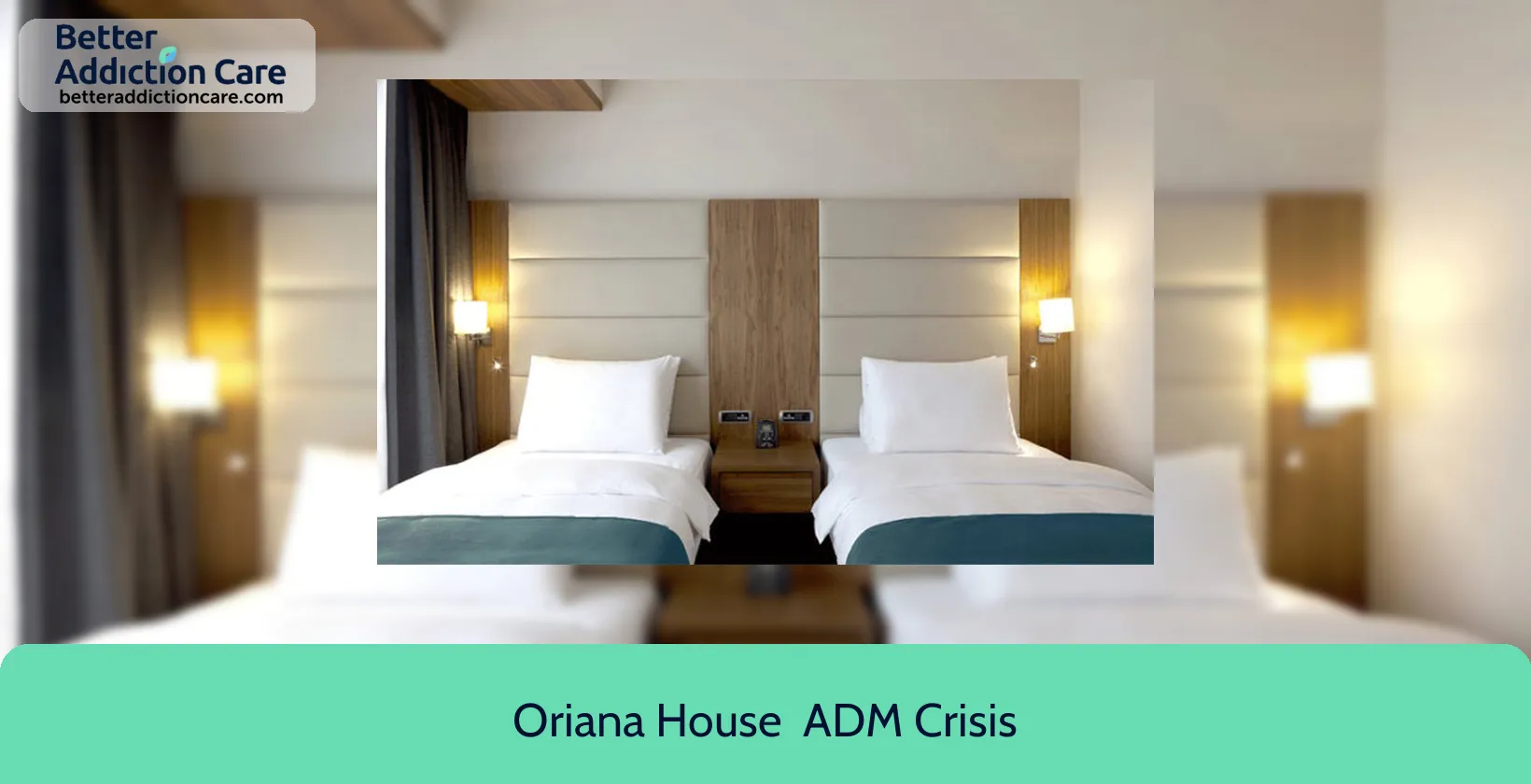Oriana House - ADM Crisis Center
Overview
Oriana House - ADM Crisis Center is a substance abuse treatment center for people seeking treatment near Summit County. As part of their treatment modalities for recovery, Oriana House - ADM Crisis Center provides 12-step facilitation, individual psychotherapy, and group counseling during treatment. Oriana House - ADM Crisis Center is located in Akron, Ohio, accepting medicaid for treatment.
Oriana House - ADM Crisis Center at a Glance
Payment Options
- Medicaid
- Cash or self-payment
- State-financed health insurance plan other than Medicaid
- Sliding fee scale (fee is based on income and other factors)
- Medicare
Assessments
- Comprehensive substance use assessment
- Screening for tobacco use
- Screening for substance use
- Complete medical history/physical exam
Age Groups
- Young adults
- Adults
Ancillary Services
- Case management service
Highlights About Oriana House - ADM Crisis Center
7.02/10
With an overall rating of 7.02/10, this facility has following balanced range of services. Alcohol Rehabilitation: 8.00/10, Drug Rehab and Detox: 7.23/10, Insurance and Payments: 6.00/10, Treatment Options: 6.85/10.-
Alcohol Rehabilitation 8.00
-
Drug Rehab and Detox 7.23
-
Treatment Options 6.85
-
Insurance and Payments 6.00
Accreditations
SAMHSA certification for opioid treatment program (OTP):
SAMHSA's Opioid Treatment Programs (OTPs) accreditation is a rigorous recognition process that signifies an OTP's commitment to providing high-quality care for individuals dealing with opioid use disorders. It assures patients, families, and the community that the program adheres to evidence-based practices, employs qualified staff, and maintains a safe treatment environment. This accreditation is a symbol of quality and accountability, offering confidence in the program's ability to support individuals on their path to recovery from opioid addiction.
Treatment At Oriana House - ADM Crisis Center
Treatment Conditions
- Alcoholism
- Opioid Addiction
- Substance use treatment
Care Levels
- Detoxification
- Outpatient
- Hospital inpatient treatment
- Residential detoxification
- Outpatient detoxification
Treatment Modalities
- 12-step facilitation
- Individual psychotherapy
- Group counseling
- Cognitive Behavioral Therapy
- Intervention Services
Ancillary Services
Languages
- Sign language services for the deaf and hard of hearing
Additional Services
- Pharmacotherapies administered during treatment
- Housing services
- Breathalyzer or blood alcohol testing
Special Programs
- Criminal justice (other than DUI/DWI)/Forensic clients
Get Help Now
Common Questions About Oriana House - ADM Crisis Center
Contact Information
Other Facilities in Akron

6.59

7.13

6.96

7.11

7.06

6.77

7.09

6.74
DISCLAIMER: The facility name, logo and brand are the property and registered trademarks of Akron Urban Minority - Alcohol Drug Abuse Outrch Program, and are being used for identification and informational purposes only. Use of these names, logos and brands shall not imply endorsement. BetterAddictionCare.com is not affiliated with or sponsored by Akron Urban Minority - Alcohol Drug Abuse Outrch Program.

